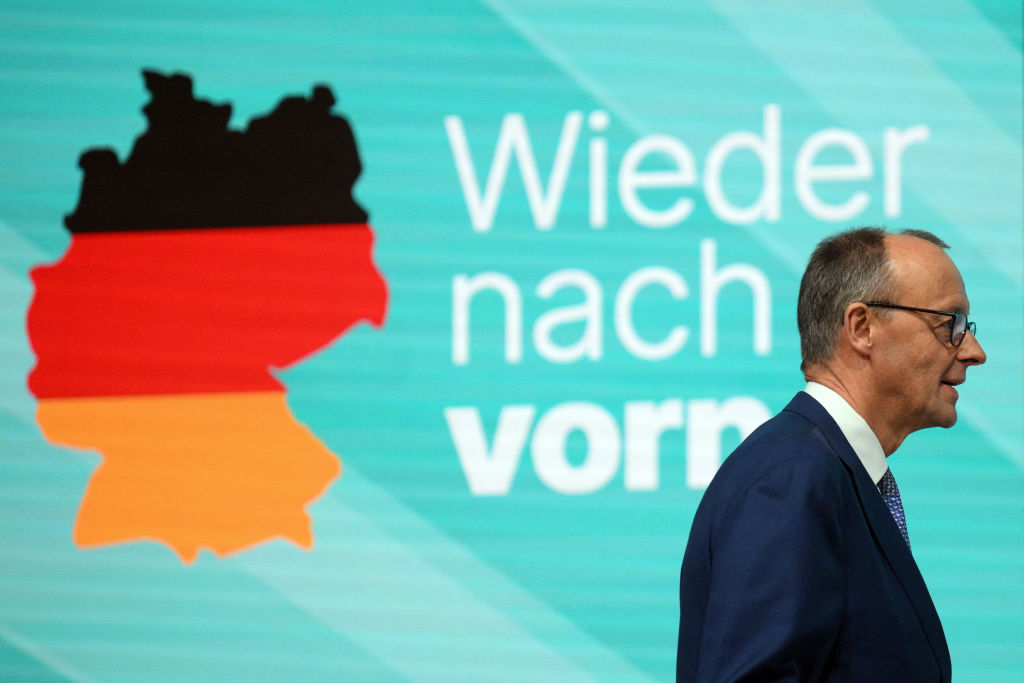
The stakes of the German election on Sunday could not be higher.
The E.U.’s biggest economy has been in recession for two years running, a gloomy outlook that looks set to worsen if Donald Trump makes good on his threat to hit Europe with tariffs.
[time-brightcove not-tgx=”true”]
The “America First” agenda of the White House’s new occupant has raised more questions about Germany’s security posture than at any time since the end of the Cold War.
And a spate of terror attacks committed by migrants have sapped public confidence in the immigration system, giving the Alternative for Germany (AfD) an opening. The German far-right now looks set to have its best election showing in the postwar era, with the AfD waiting in the wings and ready to pounce on the next government’s perceived failures.
The final polls heading into the vote suggest that Friedrich Merz, leader of the center-right Christian Democrats (CDU), will succeed the center-left Chancellor Olaf Scholz. He clearly faces significant challenges—some outside of his control and some self-inflicted.
Take the problems out of Merz’s immediate control first. The country’s economic model is in doubt, with manufacturing shaken by the end of cheap energy imports from Russia and growing competitiveness from China on the world market. These woes will only deepen if the U.S. President follows through on his tariff threats. Carmakers, the economy’s backbone, are set to be particularly affected, as Germany exports more cars to the U.S. than any other country.
Second, the prospect of a U.S. withdrawal from European security has underscored the need for Germany to do more, faster, on defense than it has for 30 years. Three days after the full-scale Russian invasion of Ukraine on Feb. 24, 2022, Scholz declared a Zeitenwende—turning point—promising a new era of German rearmament. But investment in the German army has been too slow in the three years since. Combat readiness has actually gone down because of the transfer of equipment to Ukraine.
As the U.S. turns increasingly inward, Germany will need to take a central role in Europe’s defense. That will require not just money but taking difficult political decisions, such as the possible reintroduction of a form of conscription. This is a challenge Merz appears to grasp. On Friday, he said that Europe should “prepare for the possibility” that the U.S. would not defend its European allies.
Finally, there is migration, which polls show is among the top issues for voters. The public is exhausted after a series of deadly stabbings and car rammings committed by refugees and asylum seekers, most recently in Munich just 10 days before the vote. A sense that the system is broken has driven the uptick in support for the AfD, which openly embraces “remigration,” a term for mass deportations that originated among fringe white nationalists. Some of the AfD’s far-right sister parties, such as Marine Le Pen’s National Rally in France, shun the German party as too extreme because of its commitment to remigration.
But other problems have been brought on by Merz’s own actions. His rash decision to accept the support of the AfD to pass a resolution—a first for postwar Germany—has made him appear reckless and a gambler.
The decision cost Merz trust with potential coalition partners on the center left at precisely the moment that swift negotiations to form a strong government are needed, Nils Schmid, an MP for the Social Democrats, a possible partner for the CDU, told me.
Merz’s gambit, though ham-fisted, was a recognition that rebuilding public trust around migration policy will be key to the next government’s success. The resolution, passed with AfD votes, promised performative toughness, which Merz has since admitted would be unenforceable. But enforcing the existing rules would be enough. Several recent attacks were committed by migrants whose asylum applications had been rejected and were therefore liable for deportation.
The CDU leader also remains publicly committed to the so-called “debt brake,” a constitutional ban on deficit spending in most circumstances. It was brought in by Merz’s CDU predecessor Angela Merkel to appeal to a prudent electorate but it appears painfully inadequate in the face of Germany’s pressing need to invest in infrastructure and defence.
Fortunately for Merz, the unprecedented security situation can be used as political cover to abandon the debt brake, at least for investment in defense. Voters will grant him the leeway to fiddle with deficit rules. Most will understand that politics as usual are not enough to address the country’s significant challenges.
All major parties, including the CDU, have ruled out working with the AfD, so it will almost certainly be shut out of government this term. But if the next government falters, an empowered AfD would argue that Germans, having been failed by all major parties, should offer them a chance. Across Europe, from France to Austria, the cordon sanitaire preventing cooperation with the far-right is being shattered. For now, it is holding in Germany, but it may become impossible to sustain by the time of the next election.
Those, then, are the challenges that a Chancellor Merz would face: succeed with one of the toughest hands dealt to an incoming chancellor for 30 years or risk being remembered as the leader who paved the way for the first far-right German government since 1945.



